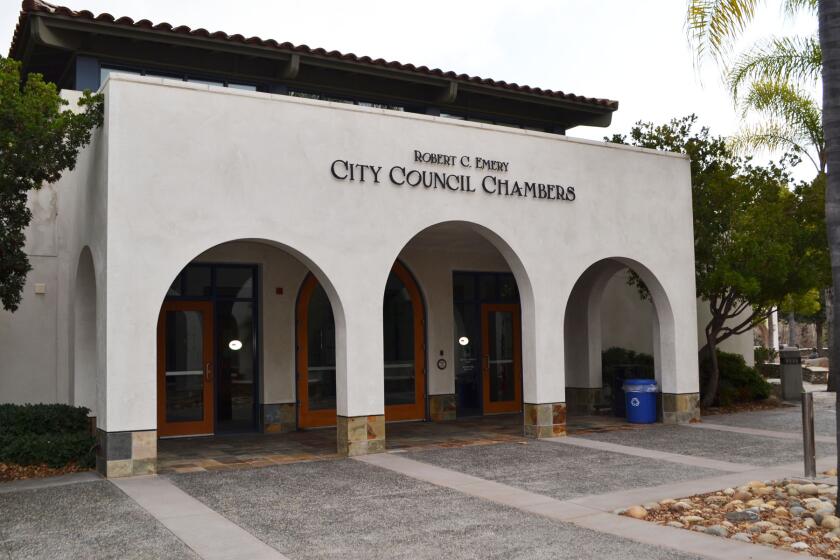Consultant critical of insular PUSD culture
A recently released consultant’s report analyzing the Poway Unified School District’s Technology Services and Operations Department offered a sometimes-grim view on issues plaguing the department.
These issues include, according to the report, a district-wide culture that stifles critical thinking, tension between departments that slows progress and shows a lack of leadership, and a site-based decision-making structure that has led to an inefficient and support-challenged technological environment.
The report was prepared by Bob Moore, founder of RJM Strategies in Kansas. Moore was hired as a consultant in November 2014, and was paid $40,000 to create a three-to-five year plan for improving IT effectiveness in the district.
Instead, Moore wrote in his report, this was an impossible task due to what he called “systemic issues that exist in terms of services, support and leadership.”
“Initially, the purpose of the review was to provide a 3-5 year roadmap for improving IT effectiveness in the district ... however, given the extent of the problems, as well as the environmental obstacles, creating such a roadmap, or plan, would have been impossible. That task was challenging not because the future is difficult to imagine, rather because PUSD staff are so mired in the current state that they are unable to envision a desirable future state other than to fix what is broken,” wrote Moore in his report.
Moore wrote that he interviewed approximately 100 stakeholders during December 2014 and January 2015, seeking their input on what technology services, staffing and infrastructure they desired in the future. These stakeholders included district administrative leaders, support staff, principals, teachers and IT staff. He wrote that he had separate, extensive interviews with Rich Newman, the district’s director of innovation, and Robert Gravina, the district’s chief technology officer.
Moore detailed his findings in the report, including his recommendations for how the district could address the issues he perceived, including budget, the decision-making structure, the culture of the district’s system, leadership, and IT department issues.
“It must be made clear, that while the challenges facing district staff in acquiring, implementing and using technologies to support teaching, learning and operations are significant and profound, it is also a complex situation in which it can be difficult to discern the root cause of the problems observed,” wrote Moore in his report.
One issue that came up both in his findings for the PUSD system and the IT department for the district is the culture that surrounds the district. Moore writes that this specific culture, called the “Po-Way” by stakeholders, “seems to have created a culture in which PUSD staff may find it difficult to think critically about district practices and learn from others outside the district.” In terms of how it applies to the IT department, Moore wrote this culture has “resulted in a ‘we know better’ attitude in regards both to other PUSD staff and external service providers.”
Moore also wrote that staffers relatively new to the district commented about how the IT department was overconfident and unwilling to admit that the district did not have all the answers.
His recommendation was that there needs to be a “deliberate and systematic approach to looking critically at decisions, programs and initiatives,” he wrote in his report, and that there also need to be efforts to look at outside programs and initiatives that could be helpful.
A lack of leadership was also cited by the interviewed stakeholders, who said that there was a lack of coordination between the Learning Support Services department and the IT department, and that can appear to be working at odds with one another. “Every organization has ‘creative tension’ between teams,” Moore wrote. “This seems to go well beyond healthy friction.” This is seen as a barrier to progress by principals who were interviewed, wrote Moore.
Moore wrote that the district’s site-based decision making was problematic from an outsider’s perspective. “It appears that principals can buy virtually any technology they want, particularly when the funds come from the local school parent group or foundation,” Moore wrote in his report. “Even principals, who highly value their autonomy, expressed time and again that they would like to see more coordination of efforts.”
Moore said this type of site-based decision making led to inefficiencies in procurement and technological support, especially since the district’s IT department is already understaffed and underfunded, according to him.
Ultimately, Moore wrote that he was unable to come up with the requested three-to-five year roadmap. “While the intended outcome of this external analysis was to have been a 3-5 year roadmap for technology services, operations, staffing and infrastructure, the approximately 100 people interviewed were so focused on the dysfunction that exists, such a forward looking exercise was impossible,” he wrote.





